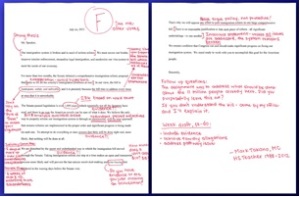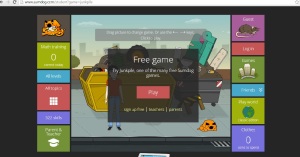Students come in all shapes and sizes: high flyers, hard-workers and some are just plain crazy! It’s this variety that can make teaching such an enriching and infuriating career path to follow. In my five years as an English teacher at a large comprehensive, the challenge of trying to motivate disaffected boys has undoubtedly been one of the biggest I have faced.
In my experience, when this issue is raised, suggestions for success and explanations for disengagement tend to follow along predictable lines:
a) Give them texts they’ll enjoy – ones about cars, computers and football
b) get them out of their seat; boys need to be active
c) boys don’t like learning – school’s not cool.
While I would not suggest that these comments are entirely lacking in substance, as somebody who sat in English lessons and was enthralled by poetry, prose and drama, I can’t help but find such rhetoric misguided, hard to swallow and to a degree, patronising.
Perhaps first I should clarify – I was by no means a model pupil; although I was reasonably bright, I did not enjoy many lessons and whiled away hours staring outside of windows. I can also clearly remember that awful feeling when I just couldn’t “get” something; exertion was rapidly usurped by frustration and frustration by resignation, a feeling I still experience when someone throws a simultaneous equation within a double decker’s length of me! So, the question remains: how do we motivate boys? How did my teacher motivate me? At the risk of adding my own sweeping statement to those listed above, he recognised one of the fundamental characteristics of many boys:
- they like to be seen to succeed, especially if they can do so without looking like they’re trying to.
My teacher was a particularly crafty bugger. Time and time again, he would water our egos, snatching a book from a desk and reading aloud a ‘FANTASTIC’ (ordinary) short story or an ‘INSIGHTFUL’ (average) attempt at analysis. He would wave away our pretend protestations, allowing us to feel like we were doing well and more importantly look like we were doing well without appearing to be trying.
**Nothing is more motivational than recognition and success. **
Of course, this alone is not enough – some teaching must take place, some progress must be made.
- But corrections would be made under the guise of suggestions and mistakes would be pointed out with subtlety and tact, not in bright, red scrawl.
The notion that sticking “laddish” texts in front of boys, sitting back and waiting for their enthusiasm to erupt is, in my view, one of the worse so-called solutions. For one, this is entirely impractical; the curriculum requires an understanding of a range of texts – like it or not, you’re going to have to learn Shakespeare along with a smattering of soppy poems. I tend to favour a very honest approach to this: it’s worth X% of your GCSE and if you don’t try, you can’t do well; although remember, you must first earn the right to be “honest”.
- Where possible, frame units that you know won’t go down well with those that will – it can’t all be fun but it has to be sometimes – surround the thorn with roses – consideration of this should occur more frequently when planning specifications (why must all classes follow the same specifications?).
Secondly, pigeonholing boys within the narrow parameters of cars, computers and football, at every available opportunity, only serves to heighten their disinterest in/dislike of many texts that they have to study; you are effectively reinforcing a stereotype and conditioning them to believe that there are some texts they are supposed to like and some that they aren’t. What could be less motivating than someone making you read a text full of a plot, characters and themes that you believe you shouldn’t be interested in, in front of a room full of your peers who KNOW you shouldn’t be interested?
- The establishment of an environment within which it’s OK to be interested is as important as creating the motivation to learn itself.
The problem is, it’s equally as difficult to achieve. I have found that presenting my own love of literature unapologetically has, on occasions, led to success. I want all my classes, whether boys, girls or both, to realise how much I love my subject and how much I want them to love it too. Even the most apathetic group of boys have found my love of Wilfred Owen a source of amusement, if not contagious and that’s a start, eh?





